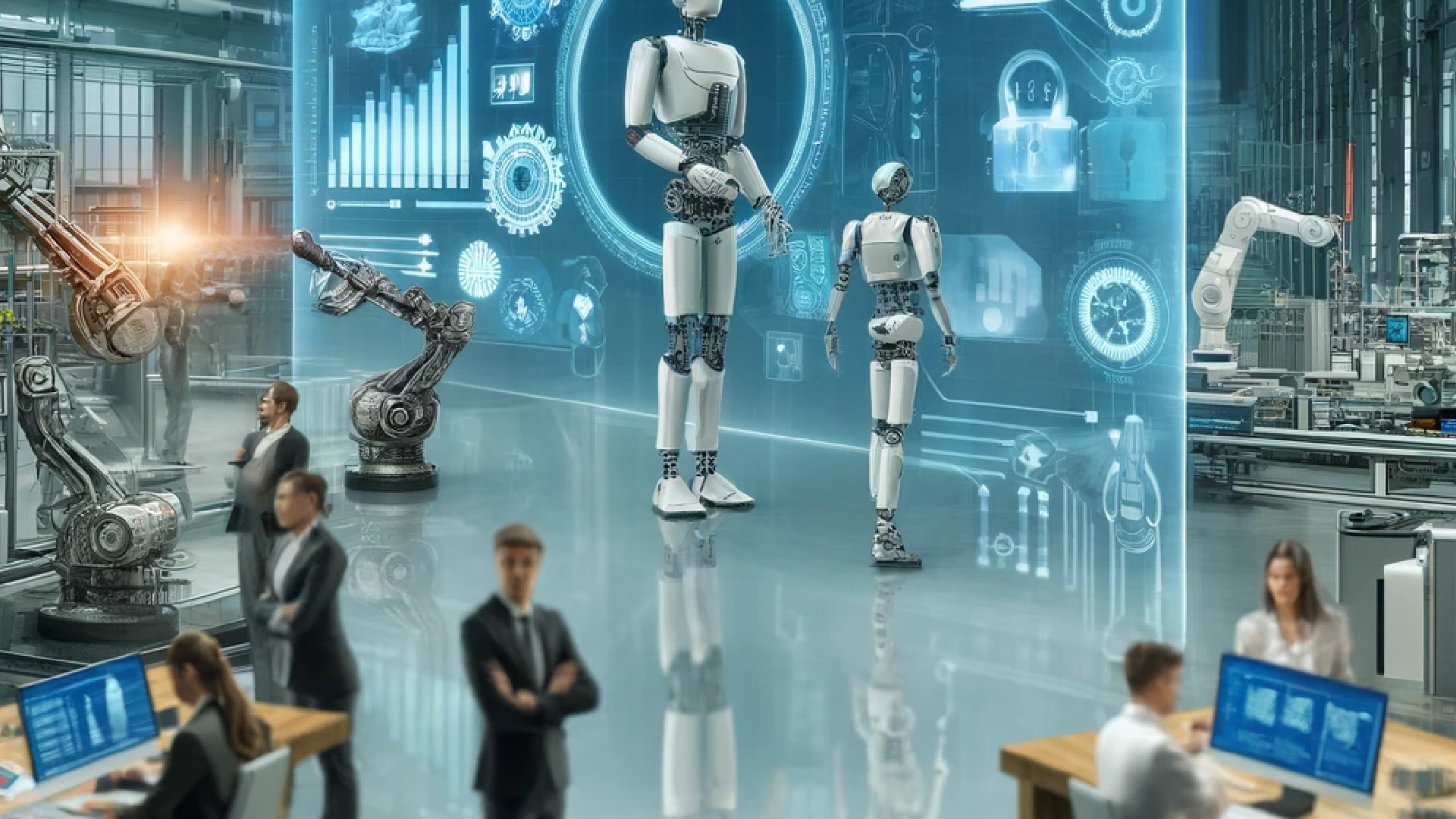
Artificial Intelligence (AI) is revolutionizing the way businesses operate by automating various processes and tasks. From managing supply chains to enhancing customer service, AI is streamlining operations and boosting efficiency across industries. In this article, we’ll provide an overview of how AI is transforming business operations, the benefits it offers, and some real-world applications.
The Role of AI in Operations Automation
AI-driven automation involves using machine learning algorithms, robotic process automation (RPA), and other advanced technologies to perform tasks that traditionally required human intervention. By integrating AI into business operations, companies can reduce manual workloads, minimize errors, and increase overall productivity.
Benefits of AI in Operations Automation
AI offers several key benefits when it comes to automating business operations:
- Increased Efficiency: AI systems can handle repetitive and time-consuming tasks much faster than humans. This allows employees to focus on more strategic and creative activities, thereby boosting overall productivity.
- Cost Reduction: By automating routine tasks, businesses can reduce labor costs and operational expenses. AI systems can work around the clock without the need for breaks, leading to significant cost savings.
- Enhanced Accuracy: AI minimizes the risk of human error by consistently performing tasks with high precision. This leads to improved accuracy in data processing, financial transactions, and other critical operations.
- Scalability: AI solutions can easily scale to accommodate growing business needs. Whether it’s managing increased customer inquiries or processing large volumes of data, AI can adapt to varying workloads without compromising performance.
Real-World Applications of AI in Business Operations
AI is being applied across various aspects of business operations, transforming how companies function:
- Supply Chain Management: AI-driven tools can optimize supply chain operations by predicting demand, managing inventory, and identifying potential disruptions. This leads to more efficient logistics and reduced operational costs.
- Customer Service: AI-powered chatbots and virtual assistants can handle customer inquiries, provide support, and process transactions. This enhances customer satisfaction by offering quick and accurate responses, while freeing up human agents for more complex issues.
- Human Resources: AI can streamline HR processes such as recruitment, onboarding, and employee management. By analyzing candidate data and automating administrative tasks, AI helps HR teams make better hiring decisions and improve employee engagement.
- Finance and Accounting: AI algorithms can automate financial reporting, audit processes, and expense management. This ensures compliance with regulatory standards, reduces the risk of fraud, and provides real-time financial insights.
- Marketing and Sales: AI can analyze customer data to identify trends, personalize marketing campaigns, and predict customer behavior. This leads to more targeted marketing efforts, increased conversion rates, and improved customer loyalty.
Implementing AI Automation in Your Business
For businesses looking to implement AI-driven automation, the following steps can help ensure a successful integration:
- Identify Key Processes: Start by identifying the processes that would benefit most from automation. Focus on tasks that are repetitive, time-consuming, and prone to errors.
- Choose the Right AI Tools: Select AI solutions that align with your business needs and goals. Consider factors such as ease of integration, scalability, and cost-effectiveness.
- Develop a Implementation Plan: Create a detailed plan that outlines the steps for integrating AI into your operations. This should include timelines, resource allocation, and key performance indicators (KPIs) to measure success.
- Train Your Team: Ensure that your team is well-equipped to work with AI technologies. Provide training and support to help employees understand the benefits of AI and how to use it effectively.
- Monitor and Optimize: Continuously monitor the performance of AI systems and make necessary adjustments to optimize efficiency. Regularly review KPIs and gather feedback from users to identify areas for improvement.
AI is transforming business operations by automating tasks, reducing costs, and enhancing efficiency. From supply chain management to customer service, AI-driven solutions are enabling companies to operate more effectively and competitively. By understanding the benefits and implementing AI strategically, businesses can harness the full potential of this powerful technology.
Stay tuned for our next article, where we’ll explore the capabilities of AI-generated static images with DALL·E.






